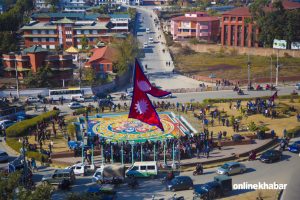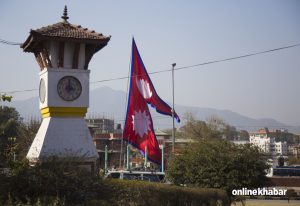
The sound development of any economy depends extensively on the infrastructure. Thus, the construction of such infrastructures calls for a strong working force in a country. In recent years, Kathmandu has become one of the most developed cities in Nepal.
As Nepal is on a rapid journey of development, construction workers and labourers play a pivotal role in shaping the outcome. This is why it is essential to understand their contribution and delve into the facts and information regarding the status of labourers actively involved in the groundwork of economic development.
Condition of labourers in Kathmandu

There is a popular saying that one who has not tasted comfort knows nothing of discomfort. This saying resonates with the condition of labourers in Kathmandu. Construction works, partly are known for being dangerous and likely life-threatening if not handled with precautions.
It is high time to learn about how society views construction work. It does not come as a surprise that the majority of people still believe that construction work is a job people choose because of their lack of specialised education.
This alone sheds light on the economic conditions of the labourers. People choosing to work as construction workers owing to their poor economic condition raise the question, “Do they finally gain financial stability?”
Over time, Nepal, as a developing country, has witnessed a shift in the perception of employment. Construction work is primarily done by unskilled and uneducated people, who are looking for a base to sustain their life. As a result, it ultimately confines the earnings of construction workers to meet their hand-to-mouth needs.
The labourers in Kathmandu lack the technical training and skills that should be provided by the government or any specialised association managing the workers. Thus, this causes low scope even for work of construction in the city.
As a result, workers migrate to Gulf countries in search of sound scope and better remuneration. The sector of construction is often overlooked by the afflicted people and sometimes even by the government.
This allows one to see an in-depth portrait of differences in opinions and expectations people hold of the labourers. For instance, the completion of construction work was deemed more significant than the safety of the labourers in open research conducted in 2021.
The wage rate daily ranges from anywhere around Rs 700 to Rs 1,000 and on an average monthly basis counts up to Rs 25,500. Given that there is no provision of security in small units of construction work and is usually seasonal. With this, we can conclude that the socio-economic condition of labourers in Kathmandu is relatively unstable than other occupations.
Need for the change

Upon studying the conditions of labourers in Kathmandu closely, one can not help but feel that strong changes are required for the advancement of the same. To gain insight into how the labourers are sustained in the profession, it is necessary to address some conditions that need amendments.
First and foremost, the safety of labourers should be the top priority in every construction work and for every contractor. The completion of work is usually deemed to be in their interest more than the safety of the workers.
Similarly, training and workshops for labourers are completely lacking in the context of Kathmandu. As a result, the provision of development programmes for construction workers should be given importance to facilitate the work of infrastructure.
The workers often have to compete to keep their jobs because of harsh evaluations and sometimes a lack of financial security. So to manage labourers in the work site with harmony and cooperation, the provision of security factors should be implemented.
Every worker should be provided with enough opportunities to increase their efficiency and productivity to prevent conflicts among the workers that unfortunately are frequent on sites of construction. Due to the heavy concentration of non-Nepali workers, the construction-related industries, including large infrastructure development projects, underwent a shortage of labour for a longer period due to the Covid pandemic.
Moreover, due to the contraction of other employment sectors such as the hospitality and tourism sectors, and the government’s focus on the development of large infrastructure development projects, post-earthquake reconstruction; this sector has the potential to employ a substantial number of people in the long-term and flourish under the operation of labourers only if proper management is ensured.
























